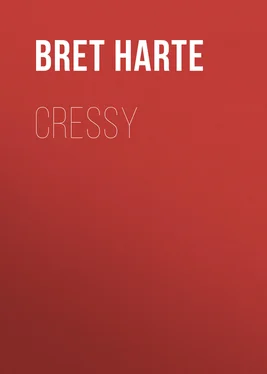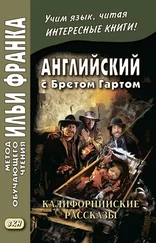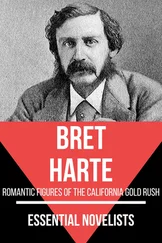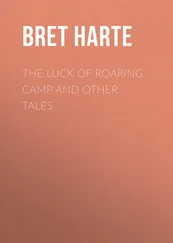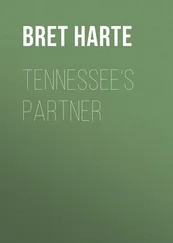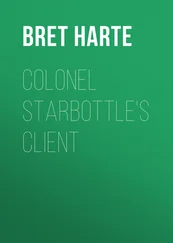Bret Harte - Cressy
Здесь есть возможность читать онлайн «Bret Harte - Cressy» — ознакомительный отрывок электронной книги совершенно бесплатно, а после прочтения отрывка купить полную версию. В некоторых случаях можно слушать аудио, скачать через торрент в формате fb2 и присутствует краткое содержание. Жанр: foreign_sf, literature_19, foreign_antique, foreign_prose, на английском языке. Описание произведения, (предисловие) а так же отзывы посетителей доступны на портале библиотеки ЛибКат.
- Название:Cressy
- Автор:
- Жанр:
- Год:неизвестен
- ISBN:нет данных
- Рейтинг книги:3 / 5. Голосов: 1
-
Избранное:Добавить в избранное
- Отзывы:
-
Ваша оценка:
- 60
- 1
- 2
- 3
- 4
- 5
Cressy: краткое содержание, описание и аннотация
Предлагаем к чтению аннотацию, описание, краткое содержание или предисловие (зависит от того, что написал сам автор книги «Cressy»). Если вы не нашли необходимую информацию о книге — напишите в комментариях, мы постараемся отыскать её.
Cressy — читать онлайн ознакомительный отрывок
Ниже представлен текст книги, разбитый по страницам. Система сохранения места последней прочитанной страницы, позволяет с удобством читать онлайн бесплатно книгу «Cressy», без необходимости каждый раз заново искать на чём Вы остановились. Поставьте закладку, и сможете в любой момент перейти на страницу, на которой закончили чтение.
Интервал:
Закладка:
Bret Harte
Cressy
CHAPTER I
As the master of the Indian Spring school emerged from the pine woods into the little clearing before the schoolhouse, he stopped whistling, put his hat less jauntily on his head, threw away some wild flowers he had gathered on his way, and otherwise assumed the severe demeanor of his profession and his mature age—which was at least twenty. Not that he usually felt this an assumption; it was a firm conviction of his serious nature that he impressed others, as he did himself, with the blended austerity and ennui of deep and exhausted experience.
The building which was assigned to him and his flock by the Board of Education of Tuolumne County, California, had been originally a church. It still bore a faded odor of sanctity, mingled, however, with a later and slightly alcoholic breath of political discussion, the result of its weekly occupation under the authority of the Board as a Tribune for the enunciation of party principles and devotion to the Liberties of the People. There were a few dog-eared hymn-books on the teacher’s desk, and the blackboard but imperfectly hid an impassioned appeal to the citizens of Indian Spring to “Rally” for Stebbins as Supervisor. The master had been struck with the size of the black type in which this placard was printed, and with a shrewd perception of its value to the round wandering eyes of his smaller pupils, allowed it to remain as a pleasing example of orthography. Unfortunately, although subdivided and spelt by them in its separate letters with painful and perfect accuracy, it was collectively known as “Wally,” and its general import productive of vague hilarity.
Taking a large key from his pocket, the master unlocked the door and threw it open, stepping back with a certain precaution begotten of his experience in once finding a small but sociable rattlesnake coiled up near the threshold. A slight disturbance which followed his intrusion showed the value of that precaution, and the fact that the room had been already used for various private and peaceful gatherings of animated nature. An irregular attendance of yellow-birds and squirrels dismissed themselves hurriedly through the broken floor and windows, but a golden lizard, stiffened suddenly into stony fright on the edge of an open arithmetic, touched the heart of the master so strongly by its resemblance to some kept-in and forgotten scholar who had succumbed over the task he could not accomplish, that he was seized with compunction.
Recovering himself, and re-establishing, as it were, the decorous discipline of the room by clapping his hands and saying “Sho!” he passed up the narrow aisle of benches, replacing the forgotten arithmetic, and picking up from the desks here and there certain fragmentary pieces of plaster and crumbling wood that had fallen from the ceiling, as if this grove of Academus had been shedding its leaves overnight. When he reached his own desk he lifted the lid and remained for some moments motionless, gazing into it. His apparent meditation however was simply the combined reflection of his own features in a small pocket-mirror in its recesses and a perplexing doubt in his mind whether the sacrifice of his budding moustache was not essential to the professional austerity of his countenance. But he was presently aware of the sound of small voices, light cries, and brief laughter scattered at vague and remote distances from the schoolhouse—not unlike the birds and squirrels he had just dispossessed. He recognized by these signs that it was nine o’clock, and his scholars were assembling.
They came in their usual desultory fashion—the fashion of country school-children the world over—irregularly, spasmodically, and always as if accidentally; a few hand-in-hand, others driven ahead of or dropped behind their elders; some in straggling groups more or less coherent and at times only connected by far-off intermediate voices scattered on a space of half a mile, but never quite alone; always preoccupied by something else than the actual business on hand; appearing suddenly from ditches, behind trunks, and between fence-rails; cropping up in unexpected places along the road after vague and purposeless detours—seemingly going anywhere and everywhere but to school! So unlooked-for, in fact, was their final arrival that the master, who had a few moments before failed to descry a single torn straw hat or ruined sun-bonnet above his visible horizon, was always startled to find them suddenly under his windows, as if, like the birds, they had alighted from the trees. Nor was their moral attitude towards their duty any the more varied; they always arrived as if tired and reluctant, with a doubting sulkiness that perhaps afterwards beamed into a charming hypocrisy, but invariably temporizing with their instincts until the last moment, and only relinquishing possible truancy on the very threshold. Even after they were marshalled on their usual benches they gazed at each other every morning with a perfectly fresh astonishment and a daily recurring enjoyment of some hidden joke in this tremendous rencontre.
It had been the habit of the master to utilize these preliminary vagrancies of his little flock by inviting them on assembling to recount any interesting incident of their journey hither; or failing this, from their not infrequent shyness in expressing what had secretly interested them, any event that had occurred within their knowledge since they last met. He had done this, partly to give them time to recover themselves in that more formal atmosphere, and partly, I fear, because, notwithstanding his conscientious gravity, it greatly amused him. It also diverted them from their usual round-eyed, breathless contemplation of himself—a regular morning inspection which generally embraced every detail of his dress and appearance, and made every change or deviation the subject of whispered comment or stony astonishment. He knew that they knew him more thoroughly than he did himself, and shrank from the intuitive vision of these small clairvoyants.
“Well?” said the master gravely.
There was the usual interval of bashful hesitation, verging on nervous hilarity or hypocritical attention. For the last six months this question by the master had been invariably received each morning as a veiled pleasantry which might lead to baleful information or conceal some query out of the dreadful books before him. Yet this very element of danger had its fascinations. Johnny Filgee, a small boy, blushed violently, and, without getting up, began hurriedly in a high key, “Tige ith got,” and then suddenly subsided into a whisper.
“Speak up, Johnny,” said the master encouragingly.
“Please, sir, it ain’t anythin’ he’s seed—nor any real news,” said Rupert Filgee, his elder brother, rising with family concern and frowning openly upon Johnny; “it’s jest his foolishness; he oughter be licked.” Finding himself unexpectedly on his feet, and apparently at the end of a long speech, he colored also, and then said hurriedly, “Jimmy Snyder—HE seed suthin’. Ask HIM!” and sat down—a recognized hero.
Every eye, including the master’s, was turned on Jimmy Snyder. But that youthful observer, instantly diving his head and shoulders into his desk, remained there gurgling as if under water. Two or three nearest him endeavored with some struggling to bring him to an intelligible surface again. The master waited patiently. Johnny Filgee took advantage of the diversion to begin again in a high key, “Tige ith got thix,” and subsided.
“Come, Jimmy,” said the master, with a touch of peremptoriness. Thus adjured, Jimmy Snyder came up glowingly, and bristling with full stops and exclamation points. “Seed a black b’ar comin’ outer Daves’ woods,” he said excitedly. “Nigh to me ez you be. ‘N big ez a hoss; ‘n snarlin’! ‘n snappin’!—like gosh! Kem along—ker—clump torords me. Reckoned he’d skeer me! Didn’t skeer me worth a cent. I heaved a rock at him—I did now!” (in defiance of murmurs of derisive comment)—“‘n he slid. Ef he’d kem up furder I’d hev up with my slate and swotted him over the snoot—bet your boots!”
Читать дальшеИнтервал:
Закладка:
Похожие книги на «Cressy»
Представляем Вашему вниманию похожие книги на «Cressy» списком для выбора. Мы отобрали схожую по названию и смыслу литературу в надежде предоставить читателям больше вариантов отыскать новые, интересные, ещё непрочитанные произведения.
Обсуждение, отзывы о книге «Cressy» и просто собственные мнения читателей. Оставьте ваши комментарии, напишите, что Вы думаете о произведении, его смысле или главных героях. Укажите что конкретно понравилось, а что нет, и почему Вы так считаете.
